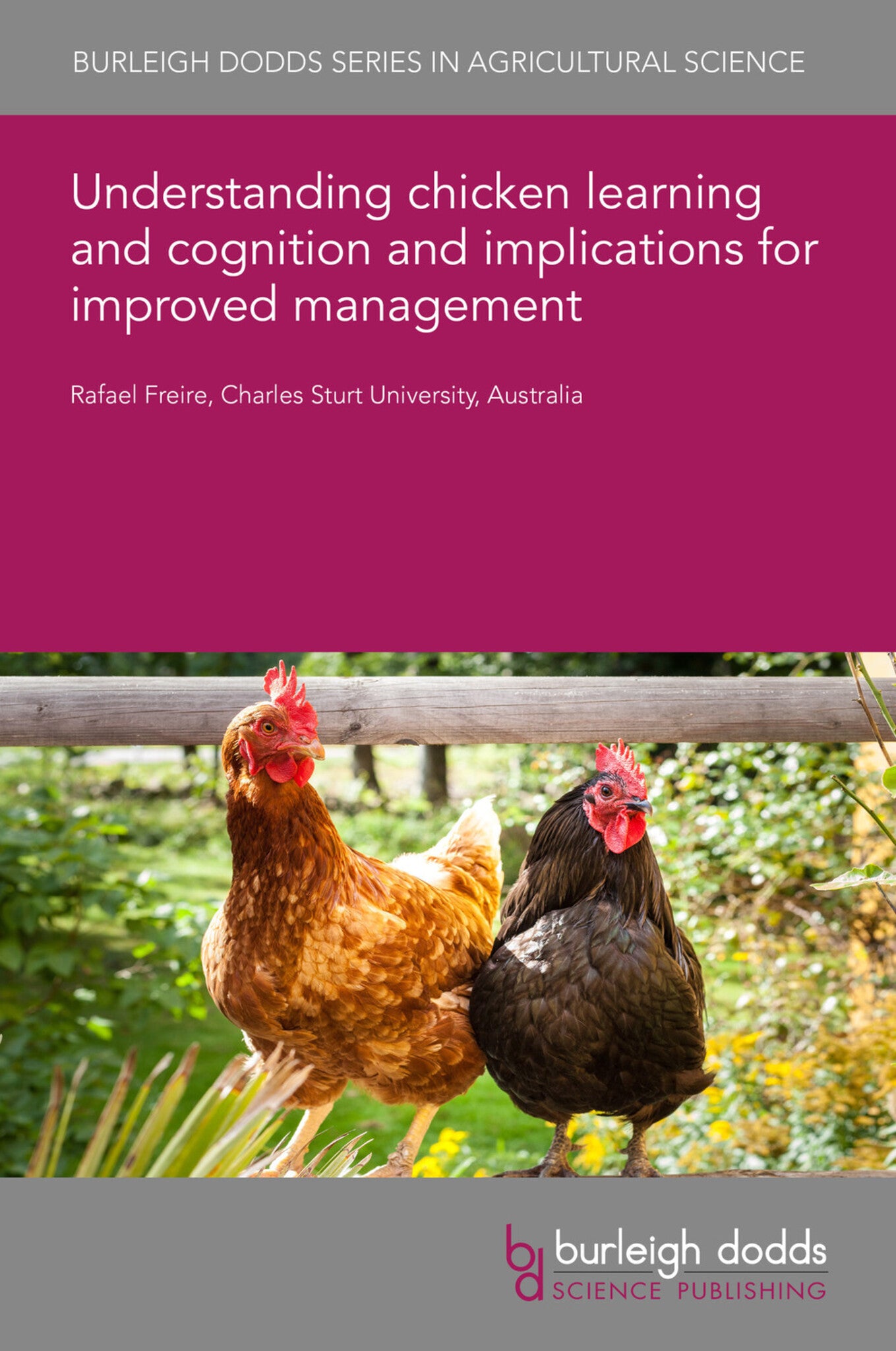We're sorry. An error has occurred
Please cancel or retry.
Understanding chicken learning and cognition and implications for improved management
Regular price
£25.00
Sale price
£25.00
Regular price
£25.00
Unit price
/
per
Sale
Sold out
Re-stocking soon
The overview of research on the learning and cognitive abilities of chickens provided here reveals some complex cognitive processes which often surprises people not familiar with chicken behaviour....
Read More

Some error occured while loading the Quick View. Please close the Quick View and try reloading the page.
Couldn't load pickup availability
- Format:
-
28 September 2020

The overview of research on the learning and cognitive abilities of chickens provided here reveals some complex cognitive processes which often surprises people not familiar with chicken behaviour. As a precocial species, domestic chicks quickly learn from the individuals and environment around them. Once in production systems chickens form associations with a number of events and show flexible and sophisticated learning. Studies of more advanced animal cognition, previously mainly undertaken on mammal subjects, indicates that chickens have a wide range of impressive cognitive skills. An understanding of chicken cognition processes could be applied to improve feeding behaviour, reduce feather pecking and cannibalism and achieve better dispersal and movement in large-groups such as free range systems. Lastly, the demonstrated complexity in mental abilities of chickens raises the question of whether we should re-frame our view and treatment of chickens as both a research animal and a production animal.

Price: £25.00
Publisher: Burleigh Dodds Science Publishing
Imprint: Burleigh Dodds Science Publishing
Series: Burleigh Dodds Series in Agricultural Science
Publication Date:
28 September 2020
ISBN: 9781786768674
Format: eBook
BISACs:
TECHNOLOGY & ENGINEERING / Agriculture / Animal Husbandry, Poultry farming, TECHNOLOGY & ENGINEERING / Agriculture / Sustainable Agriculture, Sustainable agriculture, Animal husbandry

1 Introduction 2 Early learning 3 Habituation and associative learning 4 Cognition 5 Improving management through an understanding of learning and cognitive abilities 6 Conclusion 7 Where to look for further information 8 References



